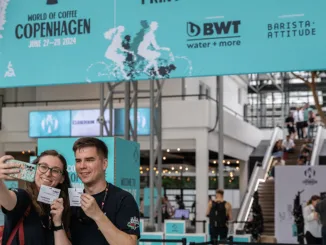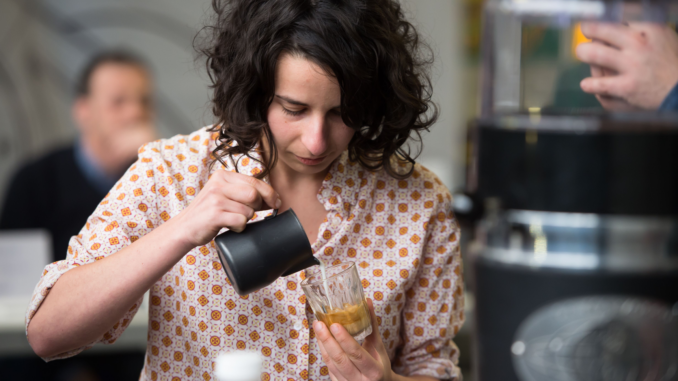
We talk with coffee champion and Q Grader Helena Oliviero about her career, her life in Colombia, and what it means to be a young woman in the male-dominated coffee world.
BY TANYA NANETTI
SENIOR ONLINE CORRESPONDENT
Featured photo courtesy of Helena Oliviero
Helena Oliviero, originally from Tuscany, Italy, is 28 years old, but already she has had a long coffee career. She has been a Specialty Coffee Association (SCA) champion in various competitions, become a Q Grader, and moved to Tolima, Colombia; she currently spends half of the year in Tolima and the rest in Italy. In this two-part interview with Helena, we get to know her.
Barista Magazine: Let’s start from the beginning: When did your relationship with coffee start? How?
Helena Oliviero: I started working with coffee when I was 17 and still in school, as a waitress and barista during the summer, and then continued working during the winter while I was finishing up the last two years of scientific high school.
When I finished school I moved to the U.K. wanting to work as a bartender but ended up working in an Italian deli as a barista and waitress. I was “fighting” with another colleague and I wanted to show that my work could make a difference. This is how I initially approached latte art, starting to look for latte art courses just to discover that there was so much more in the coffee world. I took my first course at the Espresso Academy in Florence and immediately afterward I attended the first Barista Guild of Europe Camp in Greece.
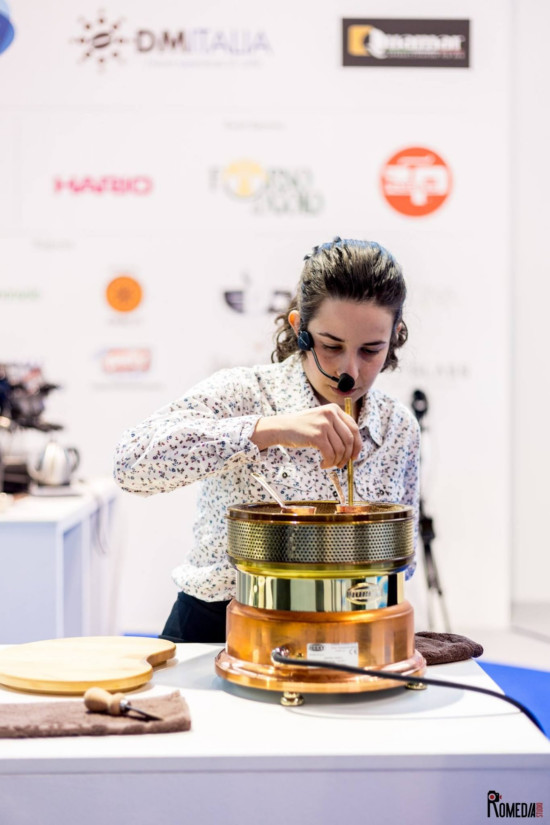
You became a coffee professional in Italy; what were your first steps into the coffee world? What was your coffee career when you were still living in Italy?
I felt that in the U.K. I was not going anywhere; I applied for barista jobs in London (I was in another city) and was not very successful, so I decided to go back to Italy and choose a situation … which in the end helped me become a trainer for Espresso Academy. There I learned a lot; I had the freedom to participate in coffee events, to travel, and to teach.
It may sound cliché, but I really learned about coffee when I started teaching. Around the same time, I won the first Italian Cezve/Ibrik Championship in 2016 and then the Italian Cup Tasters Championship in 2018.
And then a new chapter in your life: Colombia. How did it all start?
I was traveling and teaching courses in various countries, and one day I visited Colombia, to run SCA-certified courses and to look for coffee to export in the EU. This is how I met my husband, a specialty-coffee producer in Colombia.
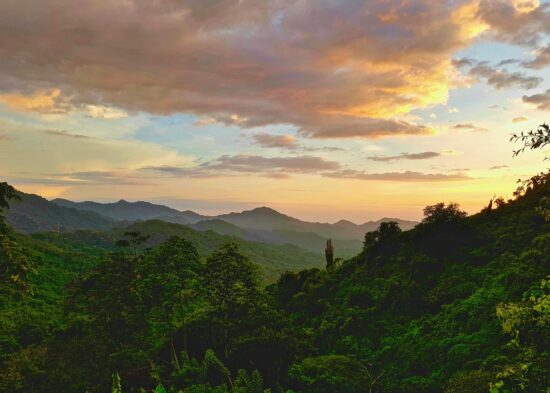
Do you remember the first time you visited Colombia? Was it love at first sight?
What I found amazing about Colombians in rural areas is their hospitality. You can go from one finca to the other and they will treat you like part of their family. They will proudly show you what they are doing and where they live. They will always offer you something to drink and eat. You can end a “finca touring” day with a couple of breakfasts, various lunches, more merendas (snacks), and multiple dinners. It’s offensive to refuse food …
When and why did you decide to move to Colombia?
Did I move to Colombia? I enjoy living in the finca where I can take care of the process and cup, but I consider myself to be a world citizen ready to travel to teach and learn from people.
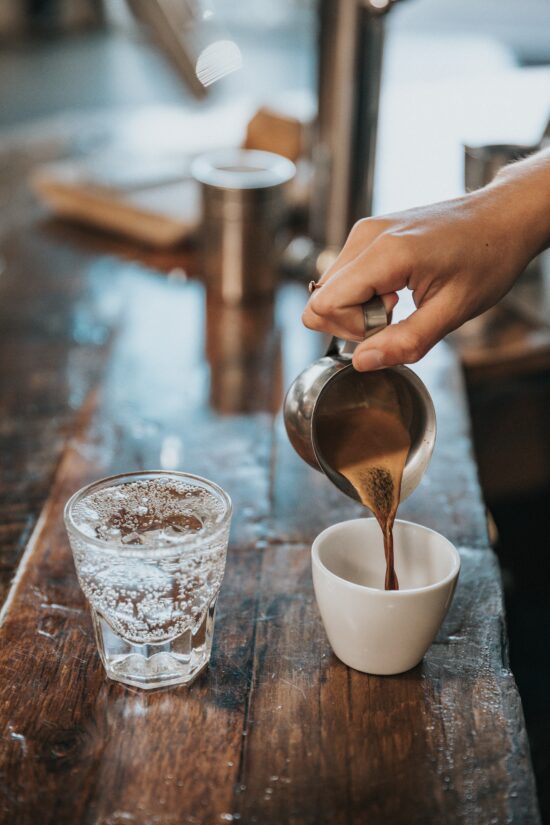
That said, I went to Colombia in January 2020 (just before COVID started) on a one-way ticket. When the pandemic started, I decided to stay in Colombia; I was in love.
Tell us a little more about your life nowadays. What do you do for a living? Do you spend your time more in Colombia, or do you often go back to Italy?
I’m currently teaching courses internationally. In the last three years, I’ve spent half time in Colombia and half time in Italy. When I’m in Colombia, I’m involved with the harvesting and processing of the coffee of the finca. During harvest season, I’m also cupping coffee (grown by) people from the same area, to find a better-paid market for their products.
Part two of this interview will appear tomorrow at Barista Magazine Online.
ABOUT THE AUTHOR
Tanya Nanetti (she/her) is a specialty-coffee barista, a traveler, and a dreamer. When she’s not behind the coffee machine (or visiting some hidden corner of the world), she’s busy writing for Coffee Insurrection, a website about specialty coffee that she’s creating along with her boyfriend.



